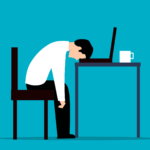Insomnia is a common sleep disorder that affects millions of people worldwide. It disrupts sleep patterns, leading to difficulty falling asleep or staying asleep throughout the night. While medication is commonly prescribed to treat insomnia, many individuals seek natural remedies to improve their sleep without relying on pharmaceuticals. In this article, we will explore various natural remedies for insomnia that can help individuals achieve restful and rejuvenating sleep. Below are the tips to have a sound sleep:
ESTABLISH A CONSISTENT SLEEP ROUTINE
One of the simplest yet most effective natural remedies for insomnia is establishing a consistent sleep routine. Try going to bed and waking up at the same time every day, even on weekends. This practice helps regulate your body’s internal clock, also known as the circadian rhythm. Your body will naturally adjust to this routine, making it easier to fall asleep and wake up feeling refreshed.
CREATE A SLEEP-FRIENDLY ENVIRONMENT
The environment you sleep in plays a crucial role in determining the quality of your sleep. Ensure your bedroom is conducive to relaxation and rest. Keep the room cool and well-ventilated to maintain a comfortable temperature. Invest in a supportive mattress and pillows that suit your preferred sleep position. Block out external disturbances using blackout curtains and earplugs if necessary.
LIMIT SCREEN TIME BEFORE BED
The blue light emitted by electronic devices like smartphones, tablets, and computers can disrupt the production of melatonin, a hormone that regulates sleep. Dim the screens or enable night mode on your devices at least an hour before bedtime. Engage in calming activities like reading a physical book, taking a warm bath, or practicing gentle stretching to unwind before sleep.
PRACTICE RELAXATION TECHNIQUES
Stress and anxiety are common triggers for insomnia. Incorporating relaxation techniques into your bedtime routine can help calm the mind and body. Consider trying progressive muscle relaxation, where you systematically tense and relax different muscle groups, or mindfulness meditation to focus on the present moment and let go of racing thoughts.
EMBRACE HERBAL TEA
Herbal teas have been used for centuries to promote relaxation and sleep. Chamomile tea is well-known for its calming properties and can help reduce anxiety before bedtime. Valerian root tea is another popular choice, known for its mild sedative effects. Passionflower and lavender teas can also aid in relaxation and help you drift off to sleep peacefully.
OPTIMIZE YOUR DIET
Your diet can impact your sleep quality significantly. Avoid heavy or spicy meals close to bedtime, as they may cause indigestion and discomfort. Caffeine and nicotine are stimulants that can disrupt sleep patterns, so it’s best to limit their consumption, especially in the evening. Opt for a light, balanced snack if you’re hungry before bed, such as a small banana or a handful of nuts.
REGULAR EXERCISE
Regular physical activity can help you fall asleep faster and enjoy deeper sleep. Aim for at least 30 minutes of moderate exercise most days of the week. However, avoid intense workouts close to bedtime, as they can raise your adrenaline levels and make it harder to wind down for sleep. so aim to complete your workouts at least a few hours before going to bed.
SUNLIGHT EXPOSURE
Natural light exposure during the day can help regulate your circadian rhythm and improve sleep quality. Spend time outdoors, especially in the morning, to soak up sunlight, which helps signal your body when it’s time to be awake and alert.
LIMIT DAYTIME NAPS
While short naps can be restorative, long or irregular daytime naps may interfere with your ability to fall asleep at night. If you need to nap during the day, keep it to around 20-30 minutes, and avoid napping too close to your regular bedtime.
CONCLUSION
Insomnia can be challenging, but it’s essential to remember that natural remedies can significantly improve your sleep quality. Combining multiple strategies can have a synergistic effect and provide a holistic approach to tackling insomnia. Keep in mind that these natural remedies may not yield instant results, and it’s essential to be patient and consistent in their application. By adopting a healthy sleep routine, creating a relaxing sleep environment, and incorporating relaxation techniques, herbal remedies, and other lifestyle changes, you can take significant steps toward achieving restful and rejuvenating sleep without the need for medication. Sleep well, and embrace the restorative power of natural sleep remedies.
For more articles, visit Psycheducate.com





